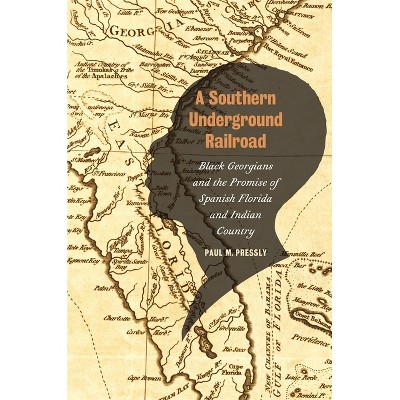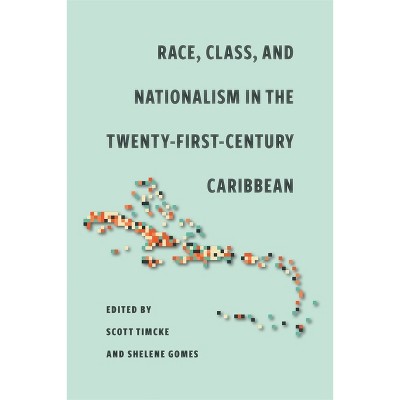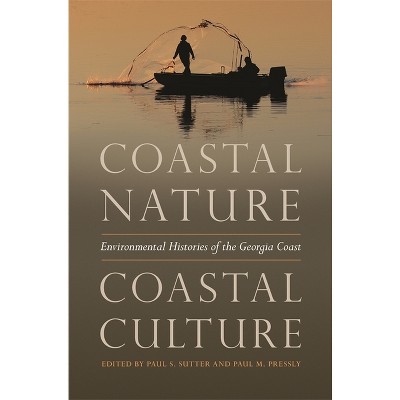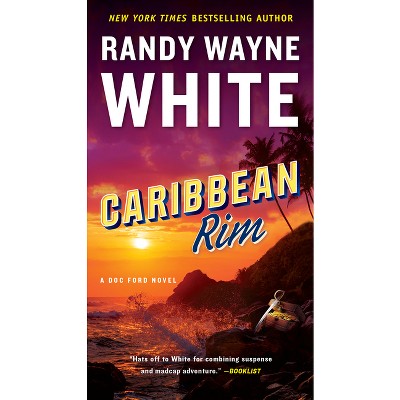About this item
Highlights
- How did colonial Georgia, an economic backwater in its early days, make its way into the burgeoning Caribbean and Atlantic economies where trade spilled over national boundaries, merchants operated in multiple markets, and the transport of enslaved Africans bound together four continents?
- About the Author: PAUL M. PRESSLY is director of the Ossabaw Island Education Alliance, a partnership between the Board of Regents of the University System of Georgia, the Georgia Department of Natural Resources, and the Ossabaw Island Foundation.
- 376 Pages
- History, United States
Description
About the Book
In On the Rim of the Caribbean, Paul M. Pressly interprets Georgia's place in the Atlantic world in light of recent work in transnational and economic history. The colony's rapid growth holds a larger story: how a frontier where Carolinians played so large a role earned its own distinctive character.Book Synopsis
How did colonial Georgia, an economic backwater in its early days, make its way into the burgeoning Caribbean and Atlantic economies where trade spilled over national boundaries, merchants operated in multiple markets, and the transport of enslaved Africans bound together four continents?
In On the Rim of the Caribbean, Paul M. Pressly interprets Georgia's place in the Atlantic world in light of recent work in transnational and economic history. He considers how a tiny elite of newly arrived merchants, adapting to local culture but loyal to a larger vision of the British empire, led the colony into overseas trade. From this perspective, Pressly examines the ways in which Georgia came to share many of the characteristics of the sugar islands, how Savannah developed as a "Caribbean" town, the dynamics of an emerging slave market, and the role of merchant-planters as leaders in forging a highly adaptive economic culture open to innovation. The colony's rapid growth holds a larger story: how a frontier where Carolinians played so large a role earned its own distinctive character. Georgia's slowness in responding to the revolutionary movement, Pressly maintains, had a larger context. During the colonial era, the lowcountry remained oriented to the West Indies and Atlantic and failed to develop close ties to the North American mainland as had South Carolina. He suggests that the American Revolution initiated the process of bringing the lowcountry into the orbit of the mainland, a process that would extend well beyond the Revolution.Review Quotes
On the Rim of the Caribbean makes an important contribution to the study of British mainland plantation colonies. . . . Pressly's rich foundation of evidence and thorough research enable a fuller and more detailed history of an often neglected colony. He has both situated colonial Georgia appropriately in the British Atlantic World and described it unusually well.--Bradford J. Wood "New West Indian Guide"
[An] extensively researched, impeccably written, and intellectually adventurous study of how Georgians turned a struggling colony into a dynamic economic success through copying West Indian plantation culture.
--Bob Edmonds "McCormick Messenger"Colonial Georgia was West Indian rather than North American. This startling conclusion becomes less surprising after reading Paul Pressly's extensively researched, impeccably written, and intellectually adventurous study of how Georgians turned a struggling colony into a dynamic economic success through copying West Indian plantation culture. By orienting Georgia southward rather than northward, Pressly convincingly shows that slavery, plantations, and the pursuit of economic gain by almost any means made Georgia a very different-because West Indian-part of the British Atlantic world.
--Trevor Burnard "professor of history, University of Melbourne"This bold and highly original study adds immeasurably to our understanding of the imperial crisis in Georgia. Paul Pressly presents a subtle, complex analysis that lays bare the political ramifications of Georgia's mercantile connections with the Anglophone Caribbean. This is a most impressive first book and one that will influence the field for many years to come.
--Betty Wood "author of Women's Work, Men's Work: The Informal Slave Economies of Lowcountry Georgia"About the Author
PAUL M. PRESSLY is director of the Ossabaw Island Education Alliance, a partnership between the Board of Regents of the University System of Georgia, the Georgia Department of Natural Resources, and the Ossabaw Island Foundation.











